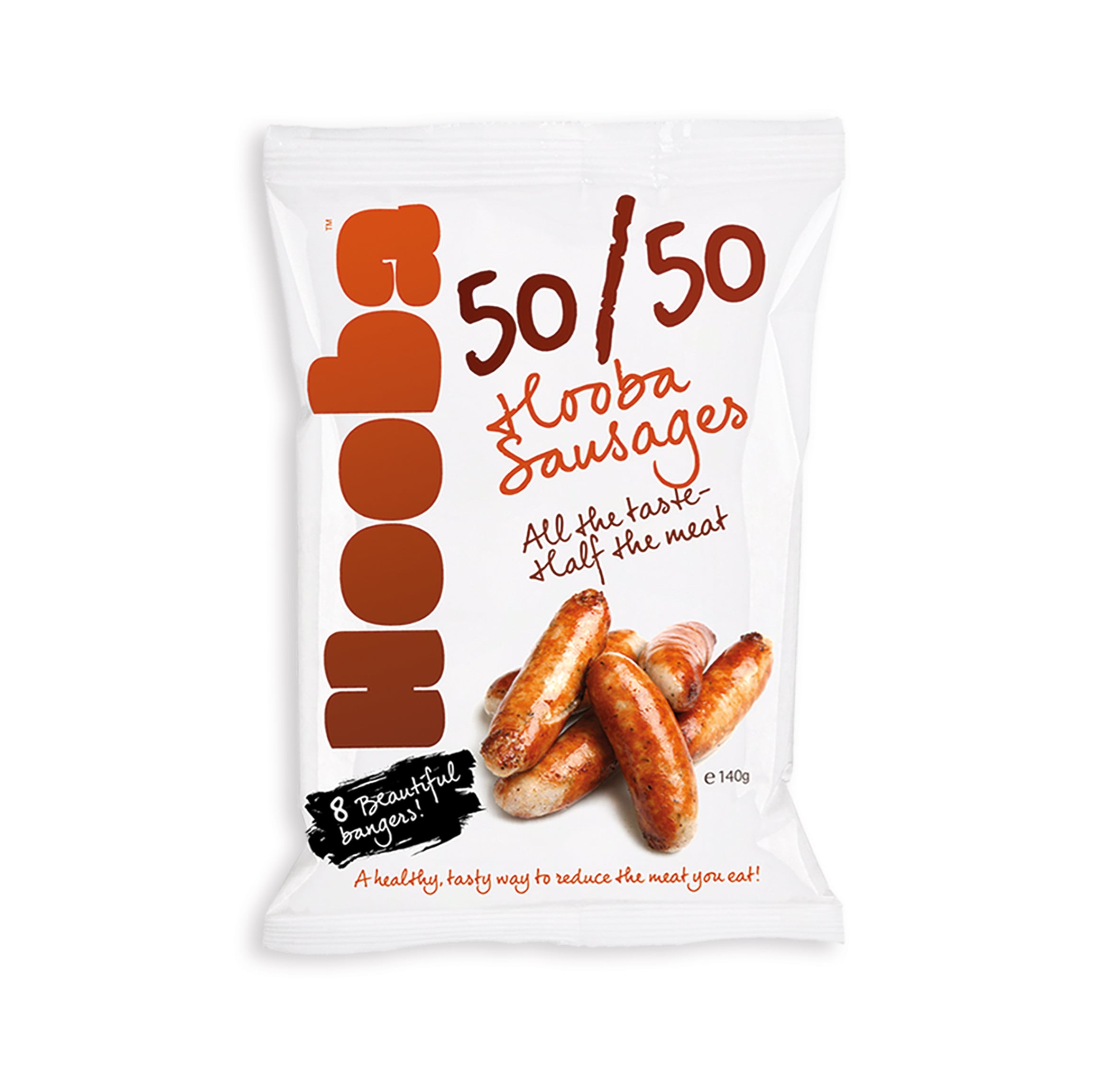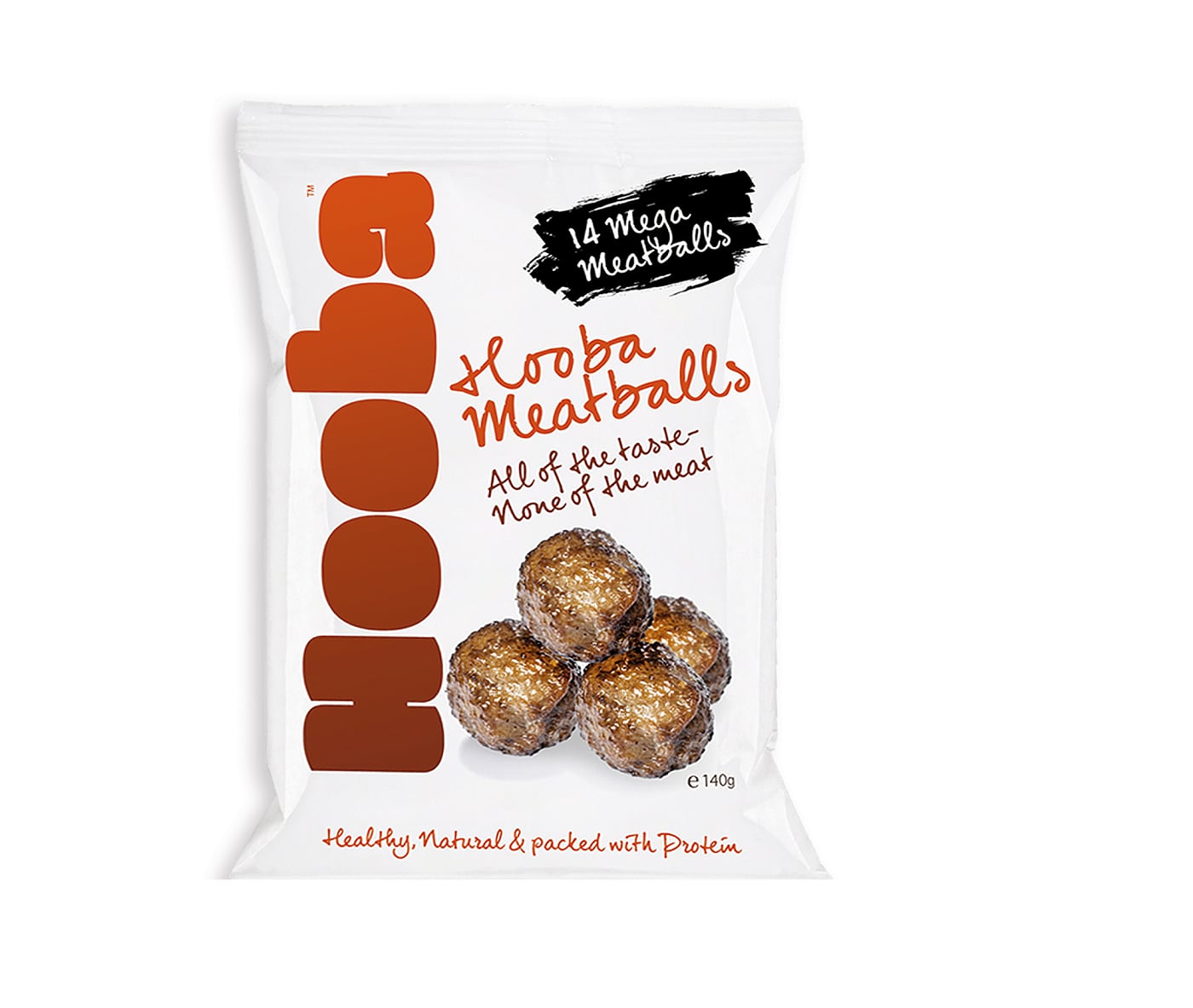Hooba offers sausages, burgers, meatballs, mince and sausage rolls in its completely meat-free range or its 50/50 range for consumers who are not quite ready to give up meat entirely.
The brand is also cutting down on food waste, joining forces with the international charity for young people, Young Men’s Christian Association (YMCA), on a new training scheme for under-privileged teenagers, saying “why throw it away if you can find a use for it!?”
Sustainable and environmentally friendly

Hooba was founded after South African mushroom farmer, Mike Botha, realised only the cap is utilised in the sale of gourmet mushrooms, leaving the stalks in the bin.
Botha didn’t like this wasteful practice and so looked for ways he could use the part of the mushroom that nobody else seemed to want.
Furthering its anti-foodwaste mentality, as part of its partnership with the YMCA, Hooba is now using spent coffee grounds from local businesses to grow its produce.
“What we’re doing is taking spent coffee grounds – whatever the barista would usually throw into the bin after he’s made your cup of coffee –, mixing that with recycled cardboard and we are actually growing the mushrooms on that as a growing medium,” said Jay Croslegh, operations director at Hooba.
Under-privileged teenagers from the YMCA training scheme are then taught about urban agriculture and are shown how to grow the mushrooms using this sustainable method.
Croslegh said the mushrooms can be grown anywhere. “With the trial product that we are doing in Newcastle, the growing is taking place in some unused railway arches.”
All of the mushroom caps produced are given to the YMCA to sell to local businesses for income – with any left unsold purchased by Hooba to guarantee revenue – whilst Hooba holds on to the stalks to use in its products.
The coffee grounds are not forgotten either, as they are then sold on to be used as soil conditioner.
“We are showing that we can grow a product sustainably and can use recycled growing mediums,” Croslegh said.
Flexi foods
Hooba is fighting the negative effects of meat production and consumption with its products, as well as fighting food waste.
Flexitarianism was listed as one of the growing market trends last year by market research company Innova Market Insights and is becoming increasingly popular, backed by celebrities including Paul McCartney, Jamie Oliver and Sir Richard Branson.
Croslegh said the diet is popular due to its environmental benefits and the increasing number of studies showing the negative health effects of eating meat.
“There’s a whole raft of reasons of why people are coming to it. What we have to do is just encourage the conversation and say if you want to look at reducing meat here is something that can help you do that,” he said.

Mushrooms are predominantly used in Hooba recipes due to their nutritional value.
Mushrooms contain high levels of protein, micronutrients, vitamins and minerals, while not containing any saturated fats or cholesterol.
Currently, Hooba’s products are only available in the UK for purchase online via its website with prices ranging from £2-4 (€2.30-4.70), however Croslegh said the company is also in talks with distributors to get the range in shops.
Hooba also distributes its products to university catering departments, hotels and restaurants.
